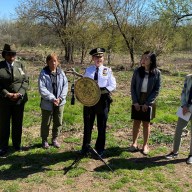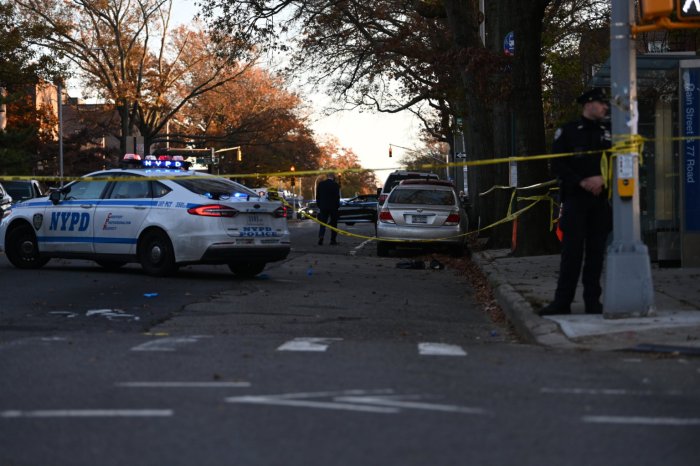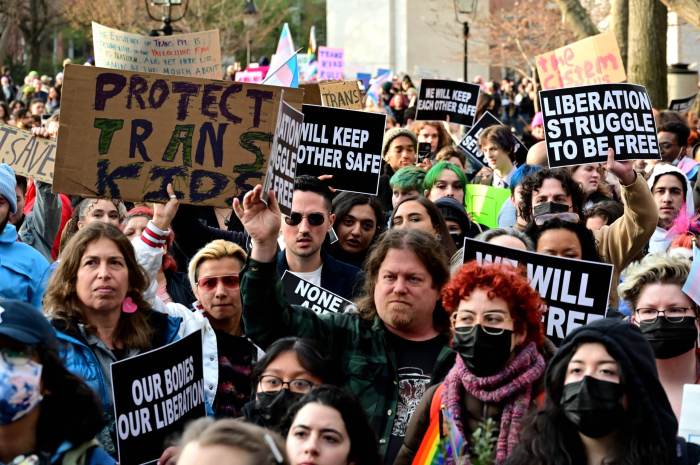By The Greater Astoria Historical Society
In November 1964, Lyndon B. Johnson was elected president by a landslide. His margin of victory in Queens was 274,301 votes. The tidal wave of Democratic victories allowed Democrats to take control of the state Legislature for the first time in 29 years.
Robert F. Kennedy was elected U.S. senator in his first bid for elective office. Many believed his long−range objective was the White House.
Nov. 22 was the first anniversary of the assassination of President John F. Kennedy. “We must keep burning in our minds and hearts as the eternal light burns at Arlington Cemetery, the flame of perpetual memory and rededication,” remarked former Borough President Mario J. Cariello at a memorial service at the plaza in front of Borough Hall in Kew Gardens.
An organist played “America the Beautiful” as a lunchtime crowd of about 100 people, some with tears in their eyes, dispersed slowly along Queens Boulevard.
That month, former U.S. Defense Secretary Robert S. McNamara ordered the Brooklyn Navy Yard and Brooklyn Army Terminal shut down as a cost−cutting move. Even after the efforts of Kennedy to prevent the closings, both were closed in 18 months.
The Navy Yard employed 10,000 workers and the Army Terminal about 2,000. The Pentagon cited cramped facilities — bridge clearance was only 131 feet, difficult or even impossible for the latest aircraft carriers. A government report suggesting the closing compared Brooklyn unfavorably with Boston and Philadelphia in fleet support, industrial capability and economic factors.
New York politicians were universally livid. Former U.S. Rep. James J. Delaney of Astoria said, “This is a shabby stunt …. I’ll probably comment further after I’ve read Secretary McNamara’s complete report.”
Thirty−two years earlier, in November 1932, the month began with the last week of another presidential campaign. On Nov. 1, Democratic candidate and former New York Gov. Franklin D. Roosevelt campaigned in Boston, where he spoke of a new unemployment relief program and charged the Hoover administration with “cracking the whip of fear” in the Republican effort to win election.
His opponent, Republican candidate and former President Herbert Hoover, spoke at Madison Square Garden, where he warned that the Democratic proposal of a “New Deal” would “undermine and destroy our American system.”
On Nov. 8, Roosevelt was elected president in a landslide. New Yorkers also elected Herbert H. Lehman as governor and Robert F. Wagner as U.S. senator, all Democratic candidates that Queens gave sizable majorities to.
On Dec. 1 at 7 p.m., the society’s annual holiday party will feature the return of an important part of the community’s heritage: the door of the former Blackwell House.
It was missing for more than a century and will be put on permanent display. David Blackwell, descendant of the original owner, will give the house keys to the community.
The door will be part of the new exhibit “The American Revolution and Long Island City.”
For more information, call the Greater Astoria Historical Society at 718−278−0700 or visit www.astorialic.org.





























